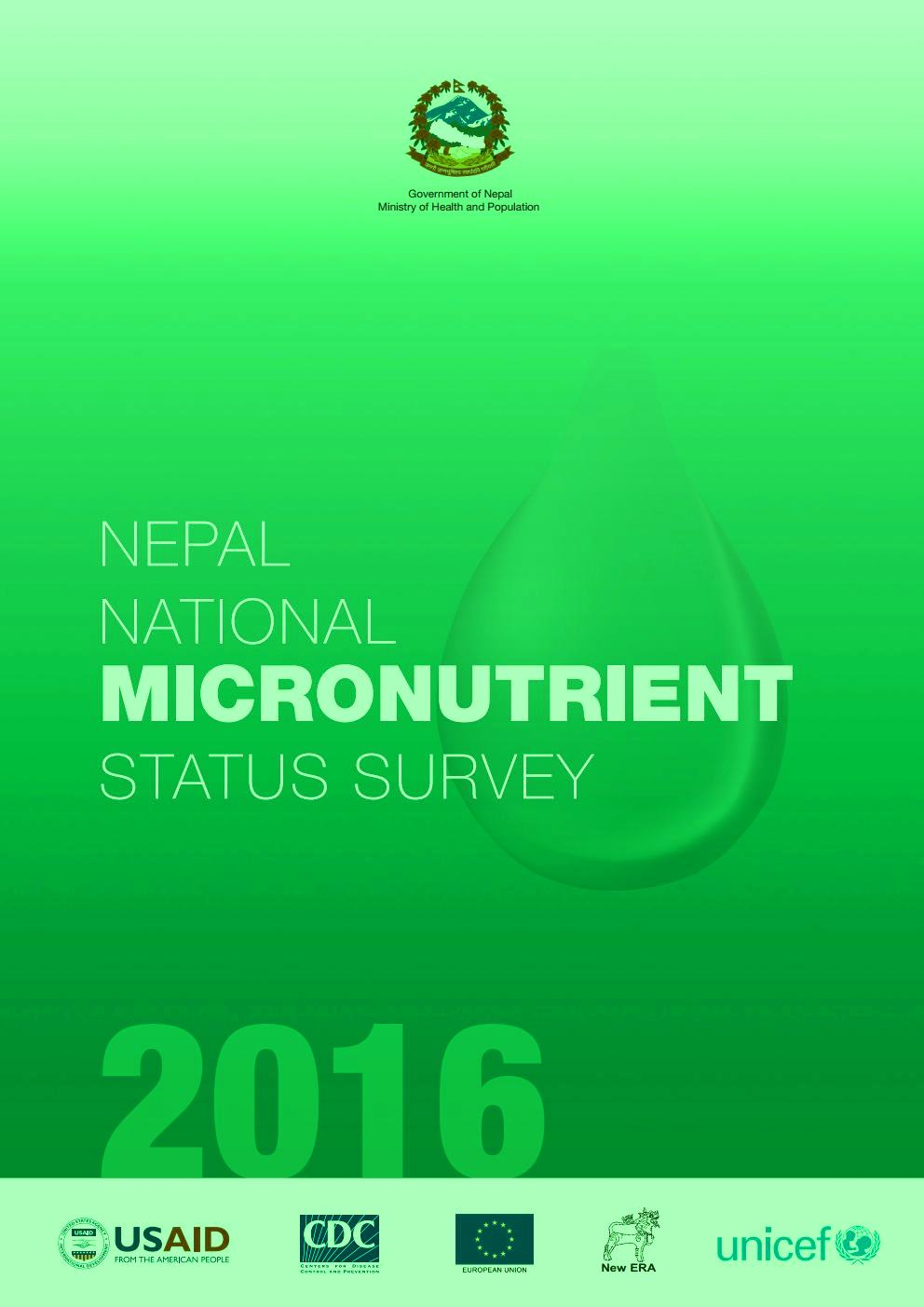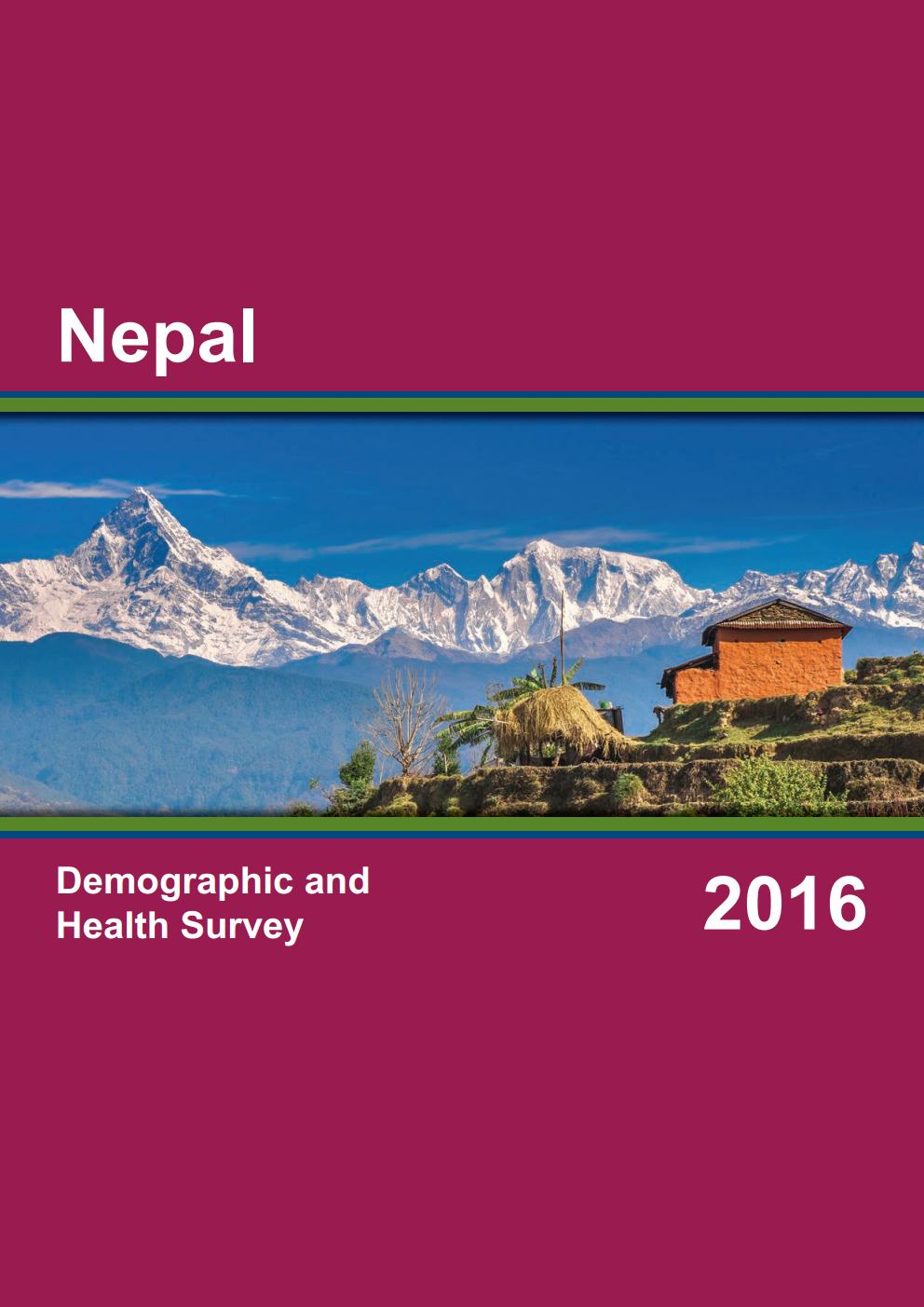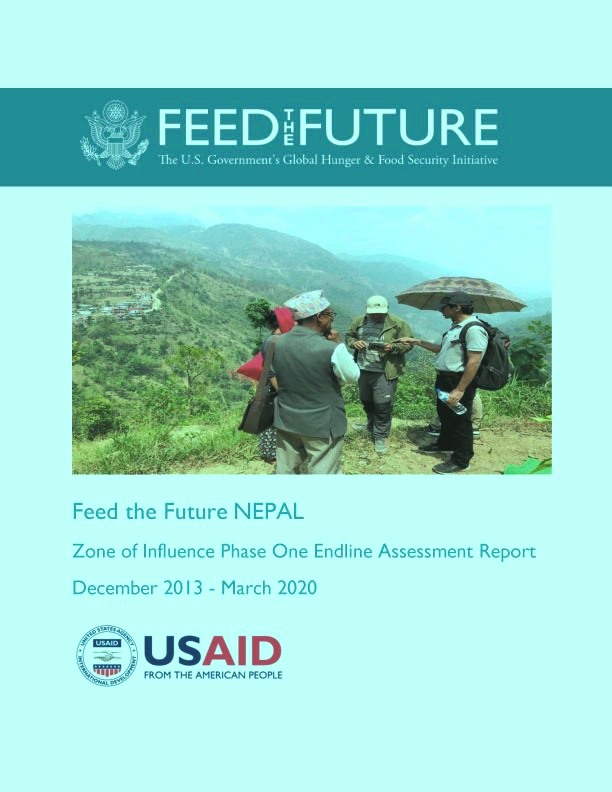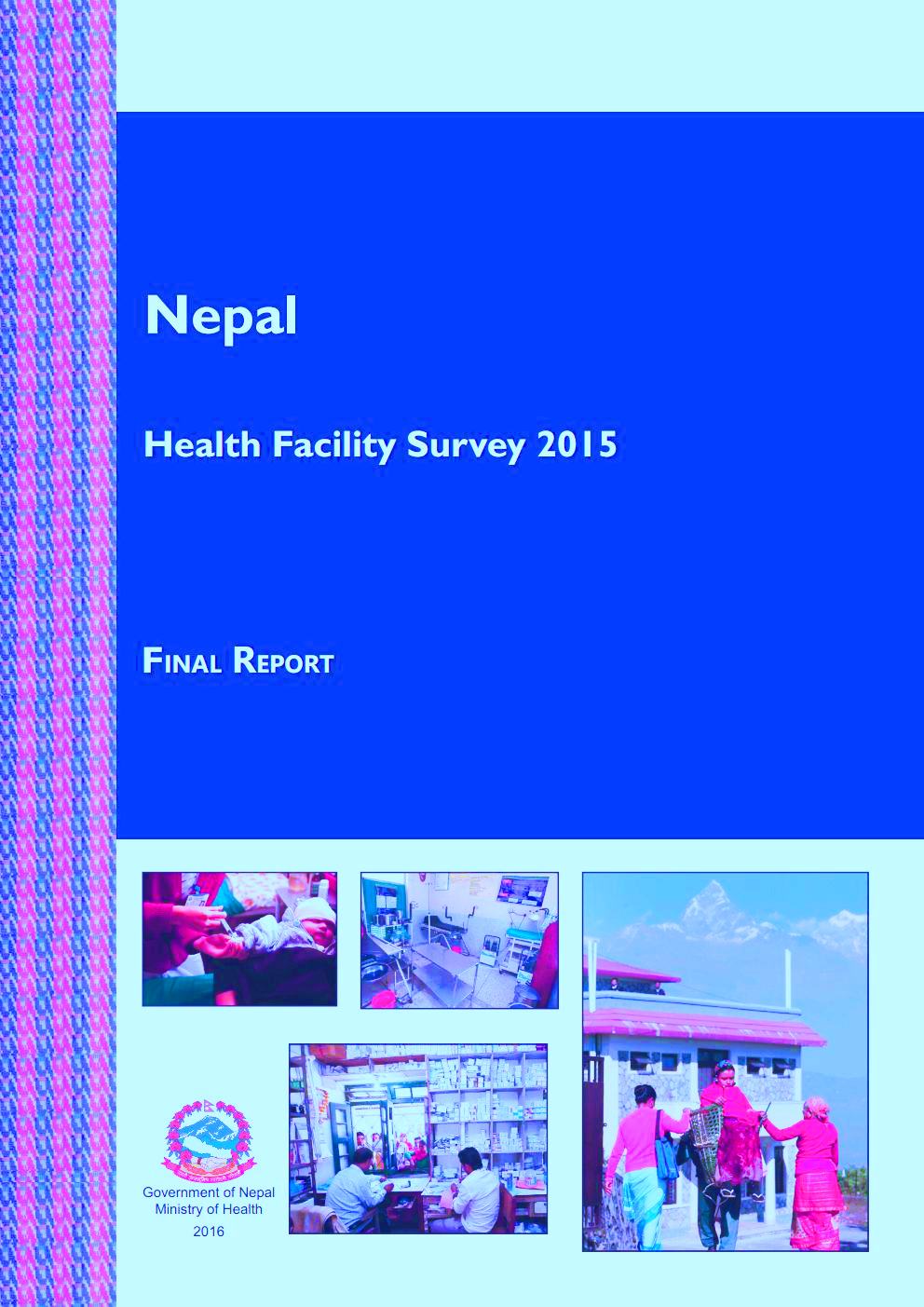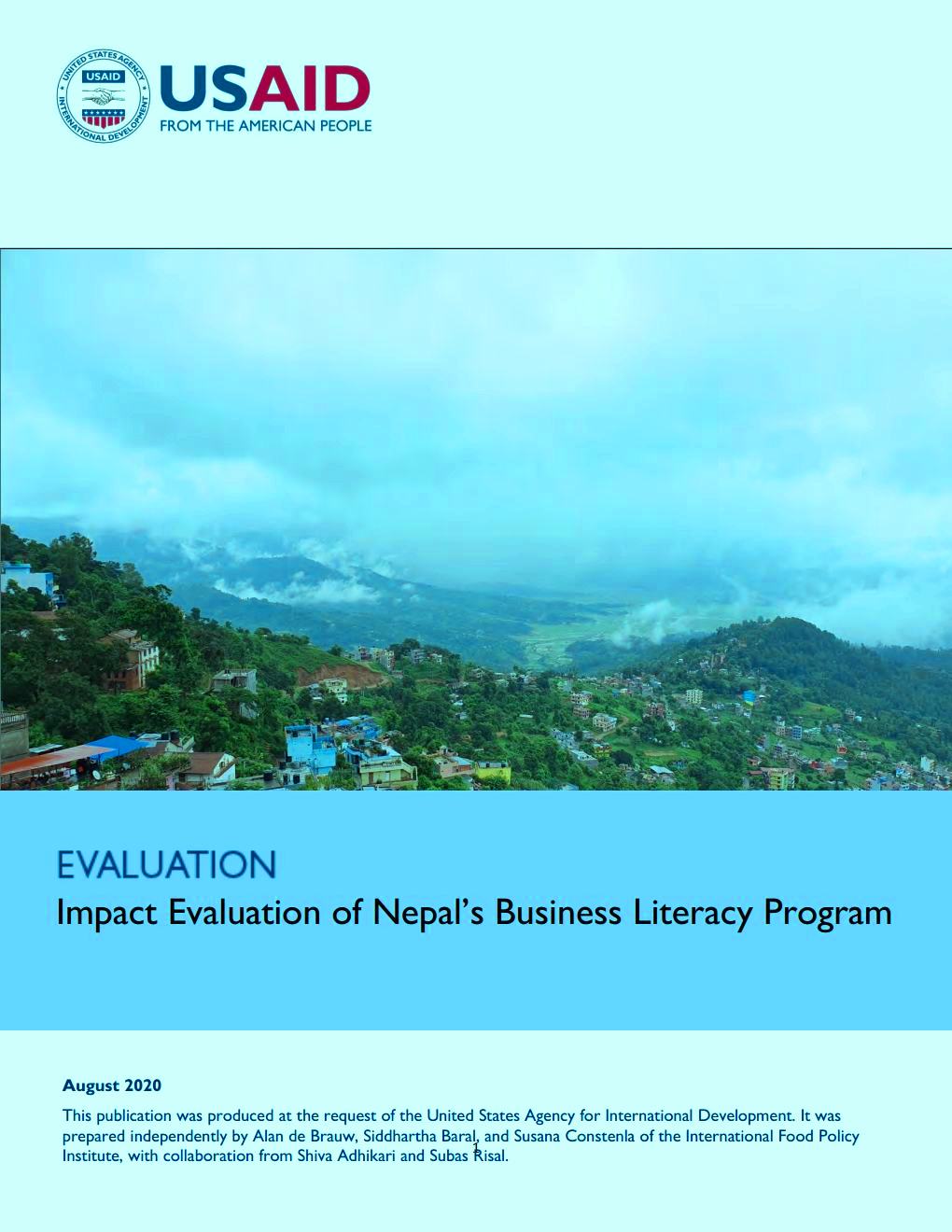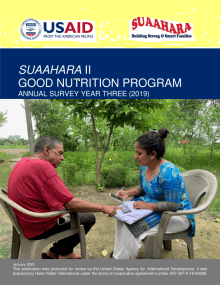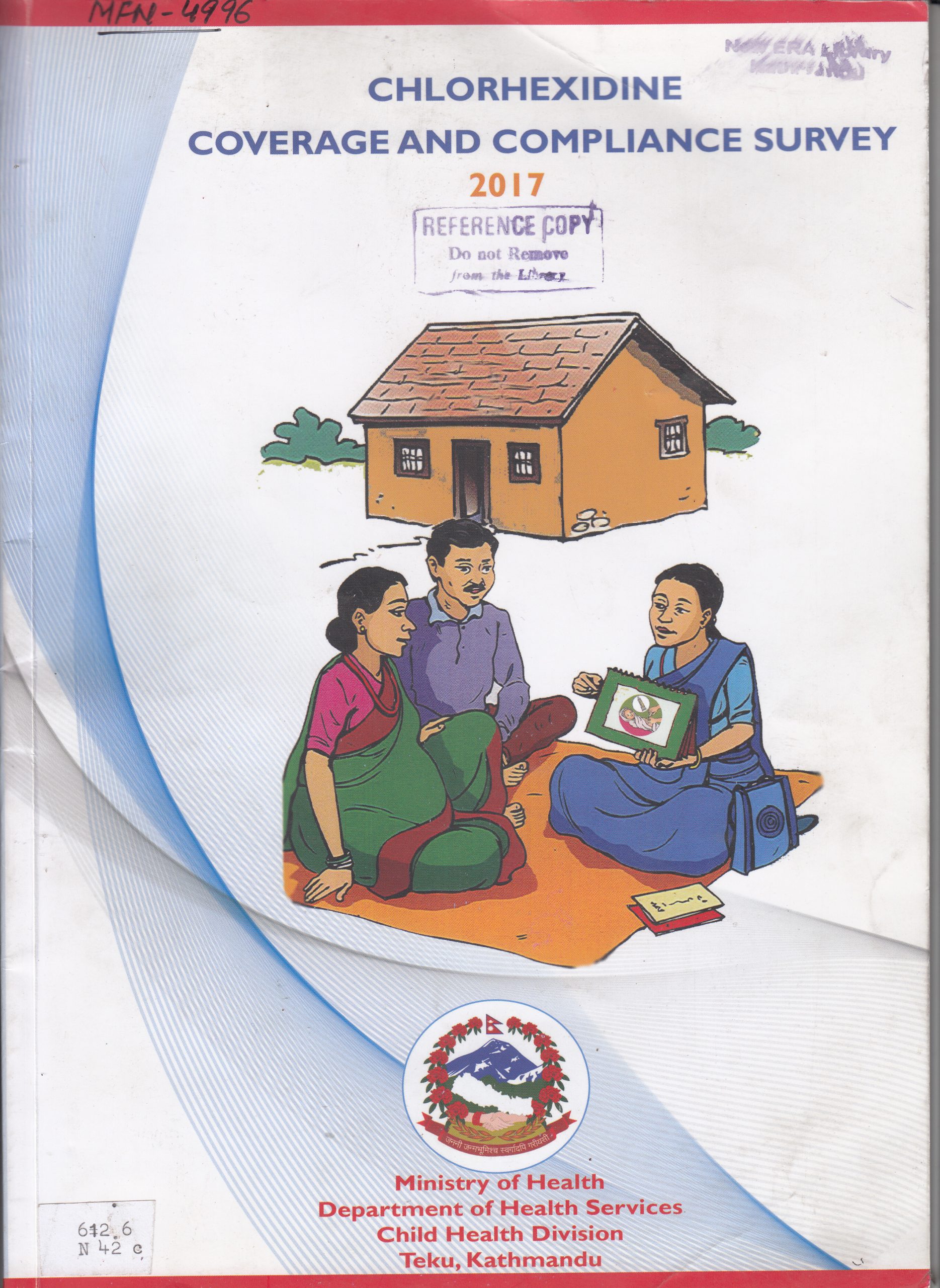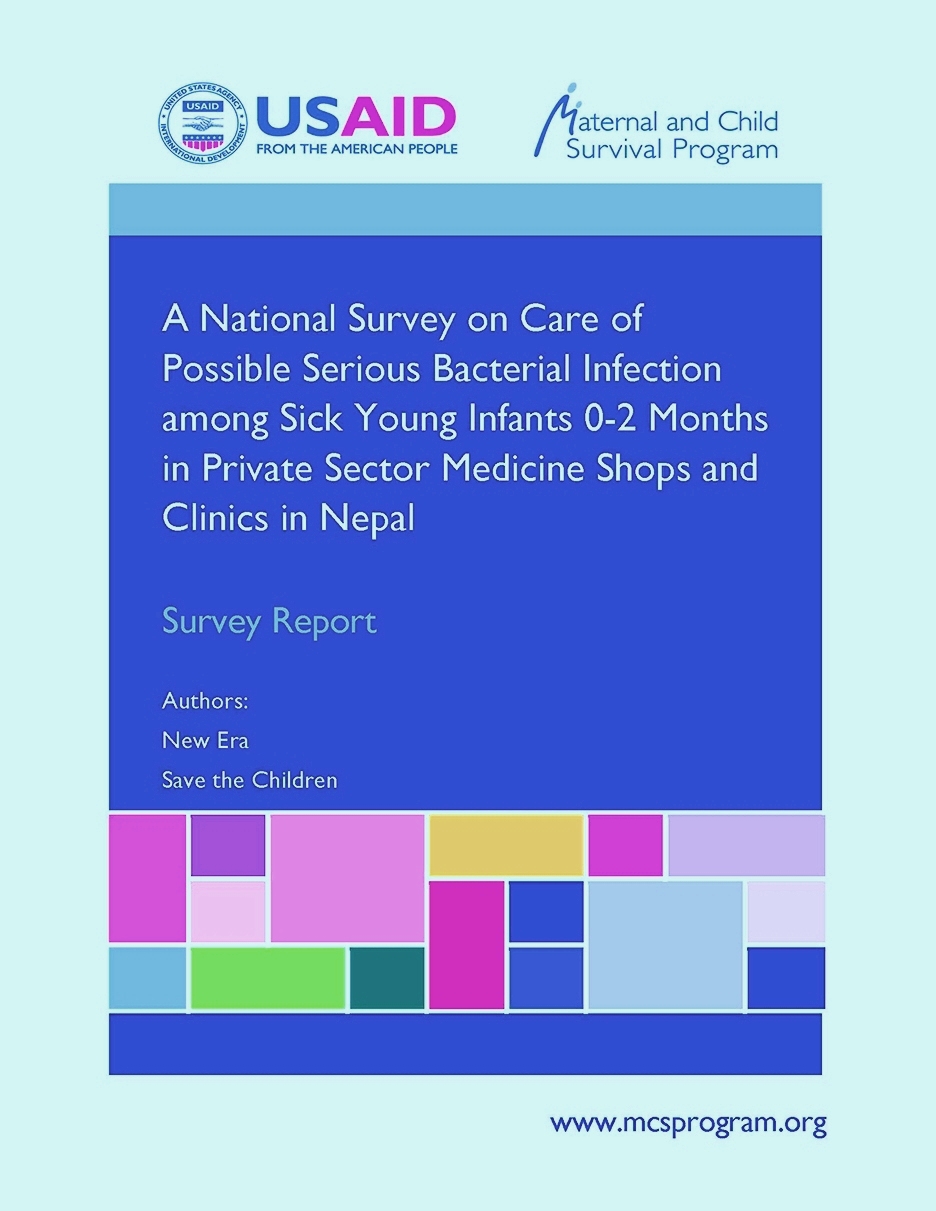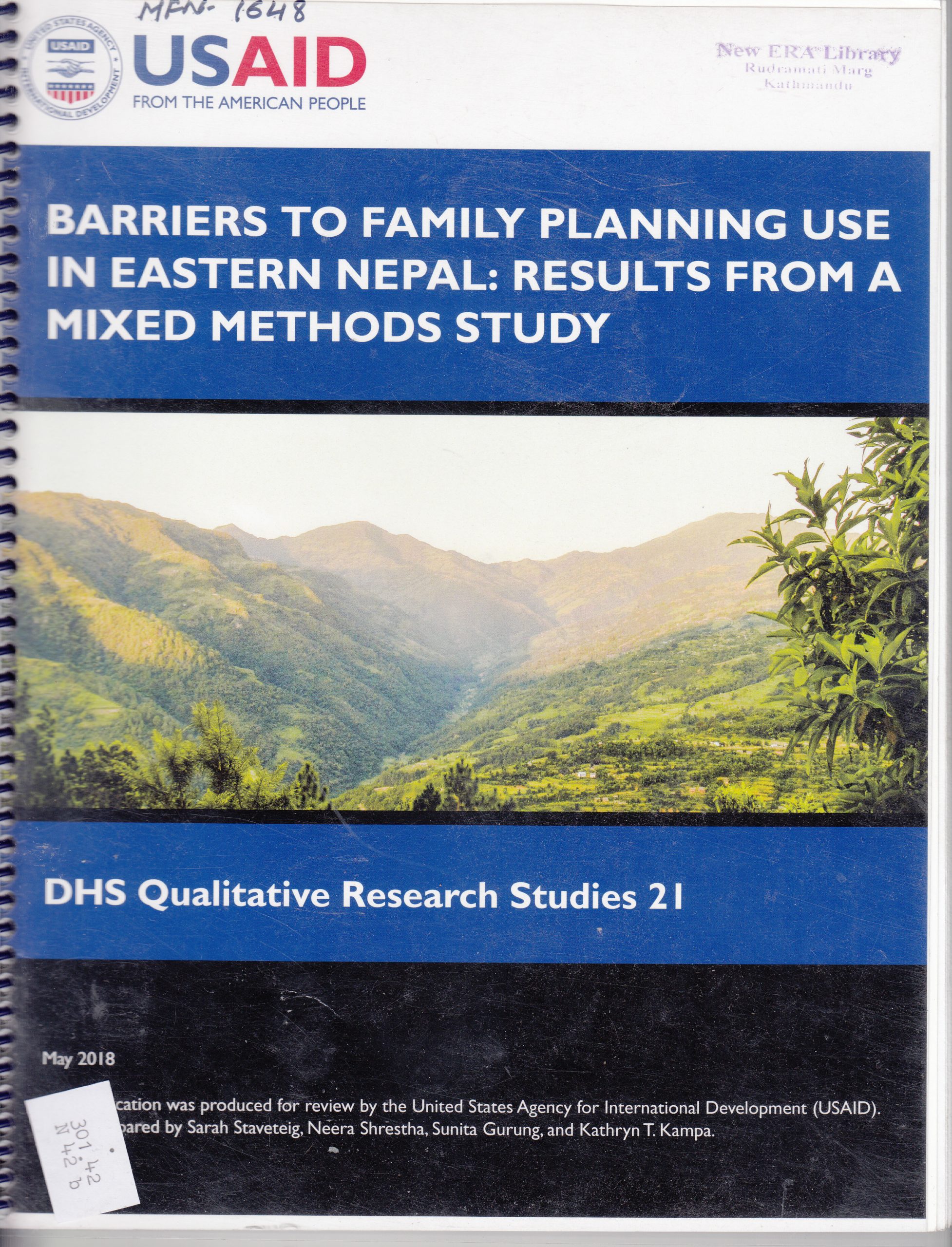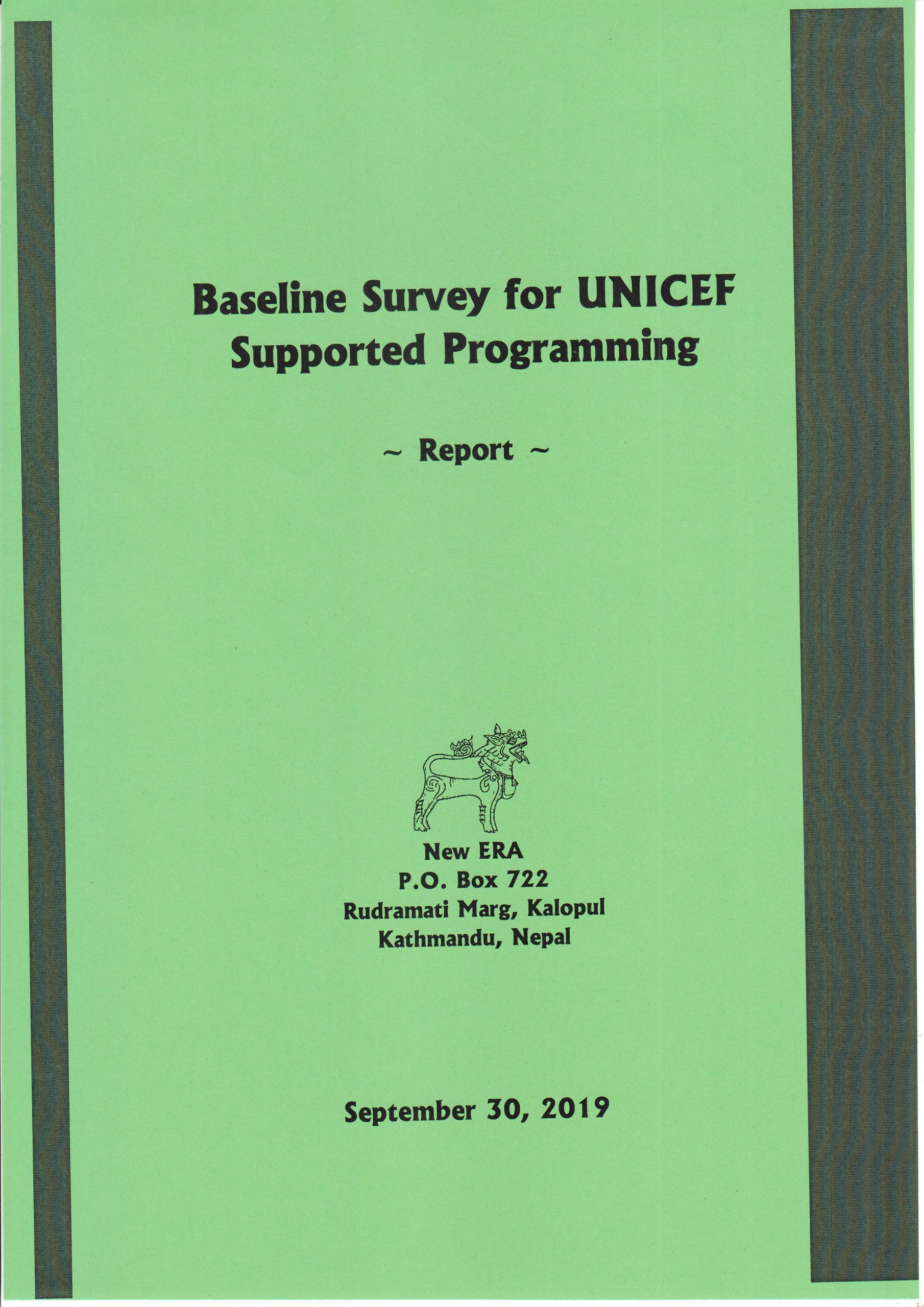This is the second survey of this kind after 1989 NMSS. The overall objective of this survey was to assess the micronutrient status among the representative populations in Nepal. Specifically the study assessed vitamin A, iron, folic acid, iodine, zinc and condition of anemia. The survey also collected information on anthropometry, infectious diseases (malaria, Soil Transmitted Helminths, H. pylori visceral leishmaniosis), blood disorders, and markers of inflammation. Additionally the survey provided information on process and outcome indicators of priority for national supplementation and fortification intervention and other key nutrition interventions in the country.
Report Type: Health
Nepal Demographic and Health Survey 2016
This survey is the ninth in a series of national-level population and health surveys and the fifth comprehensive survey conducted as part of the Global Demographic and Health Surveys (GDHS) program. The main objective of this survey is to generate recent and reliable information on demographic and health situation of Nepal. Specifically the study collects and calculates the data on fertility rates, contraceptive knowledge and practice, reproductive health of women; infant and child mortality, maternal and child health, Domestic Violence and knowledge of HIV/AID/STD. The study also assesses the nutritional status, anemia, health care utilization of women and children. It was designed to collect demographic and health information from a nationally representative sample to provide information at the national and sub-national level.
The Feed the Future 2019 Nepal Zone of Influence (ZOI) – Endline Survey
The Feed the Future (FTF) program, led by USAID was implemented in 20 food insecure districts of western, mid-western and far-western regions, Nepal to reduce poverty, and under nutrition through accelerating growth of the agriculture sector by addressing the root causes of under nutrition and reducing gender inequality. This study was designed to determine significant change over time on key outcome and impact indicators by assessing agriculture productivity, daily per capita income, nutrition status, prevalence of poverty, resilience, women’s empowerment, dietary diversity, appropriate feeding practices, and hygienic environments improvement.
Nepal Health Facility Survey 2015
This ‘Nepal Health Facility Survey (NHFS) 2015’ is the first national survey of this kind in Nepal. This study was designed to provide information the availability of essential health care services in Nepal. The study assesses the general readiness and services specific readiness of health facilities to provide client services. It also assesses the quality of services; client perception; accountability systems; financial management system; inventory and personnel management status in the health facility canters.
Impact Evaluation of Nepal’s Business Literacy Program
Business Literacy Program (BLP) is a component of USAID Knowledge-Based Integrated Sustainable Agriculture and Nutrition (KISAN) Project. The main aim of BLP was to enhance key skills with a year-long training program to strengthen literacy and numeracy, advantage agricultural market, entrepreneur knowledge and capabilities among disadvantaged ethnicities, women, or youth people aged 15 years and up of KISAN households. This study was to examine the impacts of the training on improvements in knowledge of life skills. The study assessed progress changes in knowledge, attitude and behavior on health and sanitation, diet habit, involvement in financial activities, market decision, and empowerment household decision making.
Suaahara II Good Nutrion Program: Annual Monitoring Survey Year Three
This third year annual monitoring panel survey of Suaahara II (SII) was to monitor progress over time related to key inputs, outputs outcomes and impacts in program interventions community. The study assessed the knowledge and practices for each of the thematic areas including nutrition, health and family planning, water, sanitation and hygiene (WASH), agriculture/homestead food production; and governance using gender equality and social inclusion (GESI) approaches. Anthropometric status was also assessed all reproductive age women, children under five and adolescent girls of study community.
Chlorhexidine Coverage and Compliance Survey 2017
The Chlorhexidine “Navi” Care, a USAID funded program was implemented by JSI in conjunction of Ministry of Health with goal to reduce neonatal sepsis and newborn deaths in Nepal. This survey was conducted to determine the level of knowledge, receipt, and use of Chlorhexidine among recently delivered women (RDW) age of 15-49 years in Nepal. The study assesses the knowledge of correct procedure, purpose of applying and use of CHX on umbilical cord of newborns.
A National Survey on Care of Possible Serious Bacterial Infection among Sick Young Infants 0-2 months in Private Sector Medical Shops and Clinics in Nepal
The Government of Nepal (GoN) has initiated various newborn policies and strategies and implemented many programs to improve access of services for possible serious bacterial infection (PSBI) in the public sector. Private sector health care providers such as medicine shops and private clinics are preferred over public health facilities as sources of treatment for sick children in Nepal. This study was to examine the appropriateness of care provided by private health care providers for sick young infants 0-2 months, particularly in the context of an unimpressive improvement in the neonatal mortality rate. The study assesses the current practices of service providers in private medicine shops and clinics; treatment, referral and follow-up of sick young infants. The study also assesses their practices, compare with national and global recommended practices for management of sick young infants.
Barriers to Family Planning Use in Eastern Nepal: Results from a Mixed Methods Study
This study is the follow-up of the 2016 Nepal Demographic and Health Survey (NDHS). The study was conducted to examine the barriers to family planning use among married women in Eastern Nepal. The study in-depth interview focused on family planning to the same respondents of the eastern Nepal those were interviewed in the main survey 2016 NDHS. The study assesses family planning use, fertility preference, and perceived barriers to family planning.
Baseline Survey for UNICEF Supported Palikas
The purpose of the survey was to establish baseline indicators to selected palikas of Nepal. The study will assess outcome, output and process indicators on quality of preschool and basic education; universal access to quality health services; well nourished; access to safe water and toilets at household level and good hygiene practices; access to quality maternal care of all mothers; living in safe, supportive and caring family environment; access to information, knowledge, skill and adolescent-responsive social services among adolescents people of 32 districts among 2, 5, 6 and 7 Provinces of Nepal.



